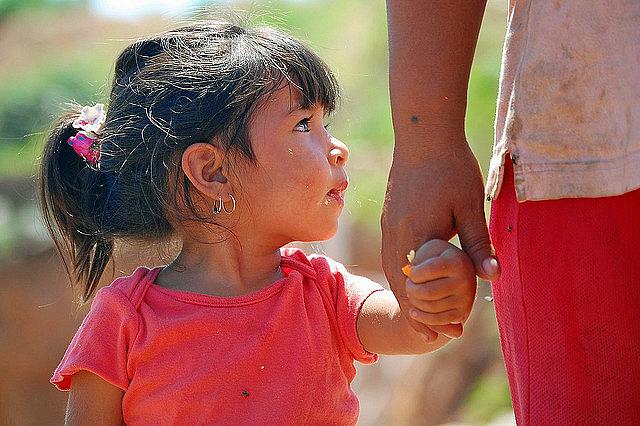Exploring the trauma endured by ‘children of the border’

Last year, federal and immigration authorities confirmed that more than 50,000 unaccompanied minors from Central America crossed the Mexico-United States border looking for their parents or better opportunities in America. Many of those children were detained and confined to various detention centers in border cities temporarily, while authorities decided their fate. Local consulates got involved contacting parents and relatives, whose phone numbers were, in many cases, memorized by the children.
I had the opportunity to speak with Martha Ramos. She is an immigrant from El Salvador who left her two children behind seven years ago and paid thousands of dollars to get smuggled to Texas by a “coyote,” or smuggler. She explained that she felt there was no choice, as her partner abused her and she had no job, and thus no means to provide for her kids. Both children were left in the care of Martha’s mother, who eventually got very ill and couldn’t watch her grandchildren anymore. Martha settled in Dallas where she married a good man and had two more kids. Given the situation in El Salvador and the fact that she feared for her kids and the “maras” (gangs that recruit little kids), she decided to pay a “coyote” again so he could help her bring her kids to America.
The children arrived in Texas after what they said was a “horrible experience.” They walked for miles and miles, cried a lot, fear for their lives, and were tired and hungry. They were finally spotted by border agents and were forced to stay for days at a detention center waiting for someone to pick them up. Finally, Martha did.
Daniel, Martha’s boy, got jealous of his new siblings and confronted his mother, telling her that she had abandoned him and his sister in a place where they didn’t have anything, even though Martha sent money home regularly. Christina said she was happy to be reunited with her mother but she felt like she didn’t belong in the new setting. On top of this family situation, they are awaiting an appearance in front of an immigration judge, who will ultimately decide if the children stay in the country or if they are deported. Typically, the latter happens if there’s no legal remedy or immigration relief possible in the case.
As these and other examples clearly show, the so-called “children of the border” are subject to neglect, abuse and traumatic events, before, during and after coming to America. It is not uncommon to hear about rape and even murder cases while these minors are crossing the border; sometimes they are abandoned by their traffickers and die of dehydration —many don’t make it.
I also had the chance to hear about the case of “Maria,” who testified at the Dallas City Hall in front of media last year and who begged local authorities to help her bring her little brother to America since, according to her testimony, he was in imminent danger in El Salvador. She admitted to being gang-raped while in transit to the United States.
Different organizations in Dallas, such as Catholic Charities, the Hispanic Bar Association, Human Rights Initiative and others are working diligently to help provide not only legal resources to these families but also counseling and even financial assistance so they can begin anew.
My National Health Journalism Fellowship project will focus on the possible mental health issues that these minors face, and what is being done by parents, schools and providers to bring relief to the traumatic events they have gone through. Through a series of reports, I not only want to raise awareness about the topic but also provide relevant information for parents or legal guardians so they can better understand the kids’ mental and emotional pains. I will explore depression, anxiety, post-traumatic stress disorder and other possible outcomes of the trauma these children have experienced in their trip north.
I will also explore how these traumatic events can affect the children in school and in their adult life, since many of them will stay and become just like any other American child. Do they feel different? Do they feel like they belong to this new reality? Do they succeed as students? Do they regret leaving their home countries?
I will focus on at least two families that can share their experience. My plan is to talk with the children and gather their thoughts on their feelings and their personal experiences. Then, I’ll review the cases with experts.
[Photo by Bosma via Flickr.]

